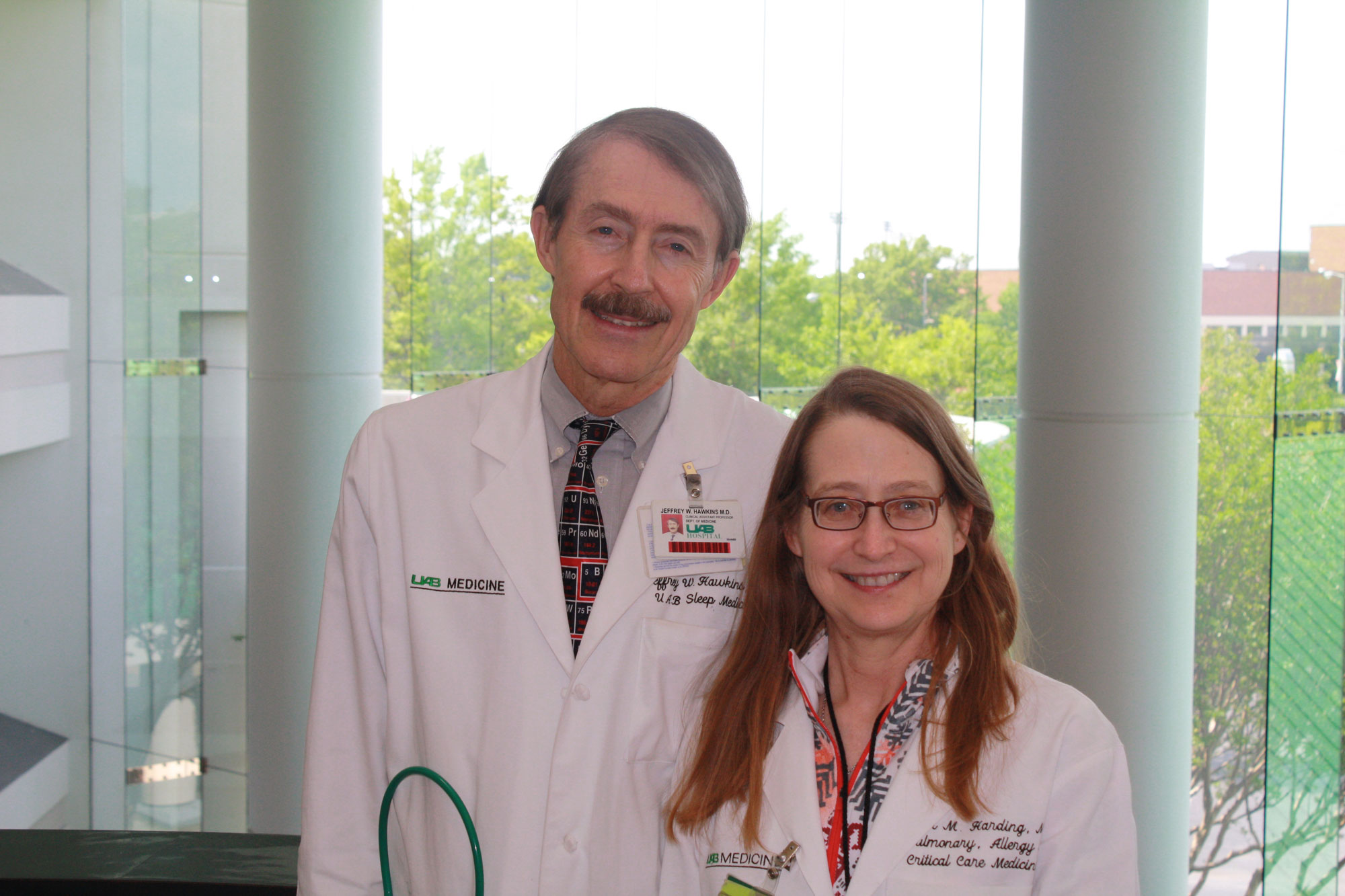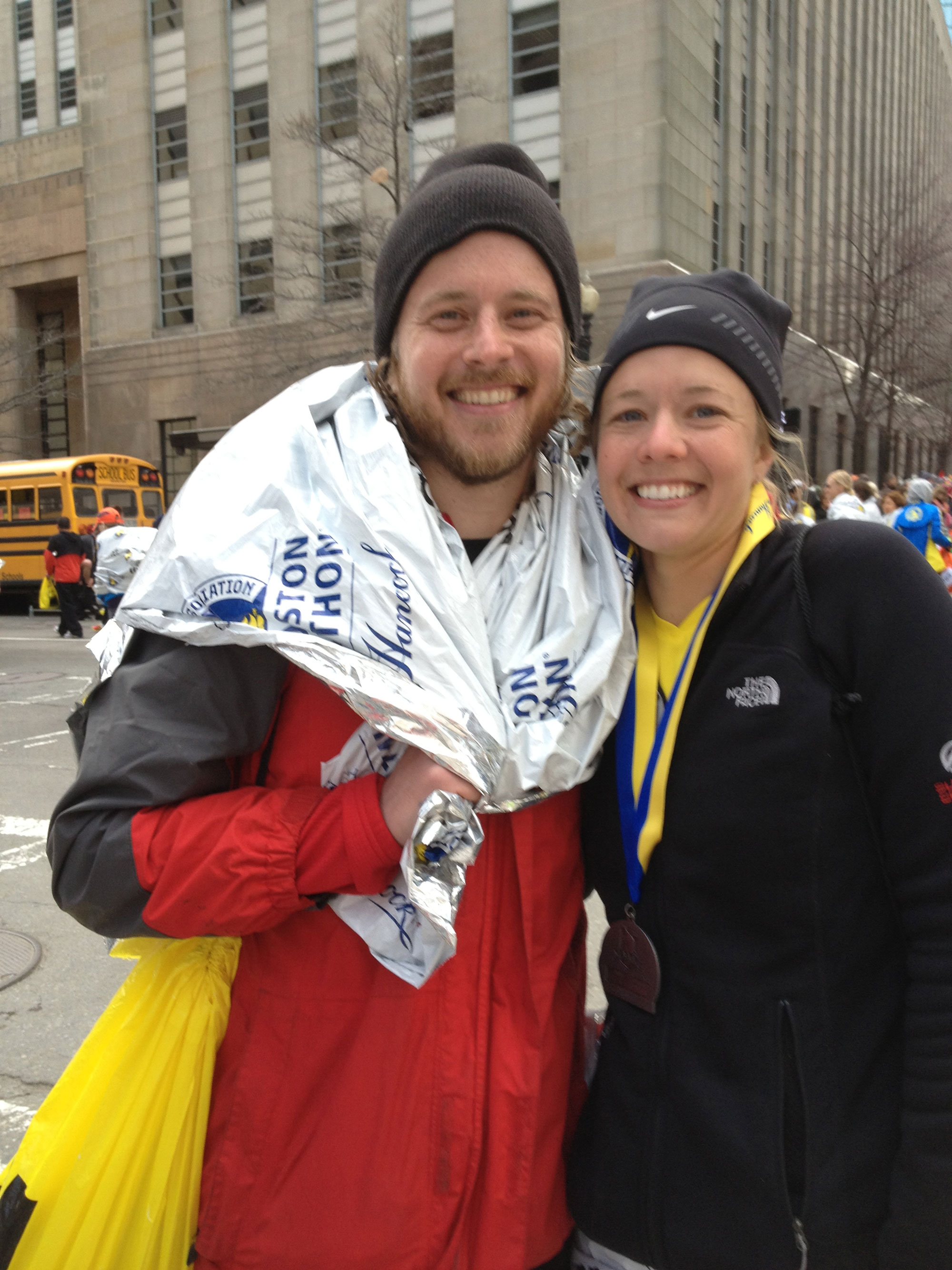 |
|
Jeffrey W. Hawkins, M.D., and Susan Harding |
Coghill and his wife Karen were walking back to their hotel and when the first bomb exploded, directly on the opposite side of the building they were passing. “It was very loud, shaking the ground. My first thought was that the bleachers had collapsed or a crane had come down off one of the buildings under construction. Moments later there was a second blast slightly further up and obviously not from the same place. Just like the Twin Towers on 9/11, the second blast made it very suspicious that it was indeed bombs.”
Authorities have said in published reports the attack was executed by two brothers, Tamerlan Tsarnaev, 26, who died April 19 following a police shootout, and Dzhokhar Tsarnaev, 19, who was taken into custody four days after the bombings following a massive manhunt that threw the city into lockdown.
“There is so much joy and pride in this event, not just from the runners but from the thousands of volunteers and from the city of Boston itself,” said Gynecologic Oncology fellow Britt Erickson, M.D., another runner from UAB. “For 26.2 miles, this city cheers, applauds, makes music, holds signs, high-fives, nourishes and encourages 27,000 runners who are, for the most part, complete strangers. There’s an intangible spirit that descends on the city during this great day. To know that there is enough evil in this world to turn this day into tragedy and horror was devastating.”
Susan Harding Hawkins, M.D., a professor of Medicine in the Division Pulmonary, Allergy and Critical Care, was about a half block away from the explosions, but was behind the Boston Public Library and shielded from the blast. Her husband Jeffrey W. Hawkins, M.D., an assistant professor in the Division of Pulmonary, Allergy and Critical Care Medicine, who was running the marathon for the 19th time, was in the post-race walking area and felt the explosion, but wasn’t injured, she said.
“We didn’t know what was going on, so we looked at the Internet and social media, but it was too early to know anything,” Hawkins said. “I saw people running from the scene, many with frightened faces. Jeff’s brother Jim knew something bad had happened because the two blasts went off seconds apart.”
Victims of the bombings had varied injuries, from blast injuries and burns to trauma that required amputations, according to news reports.
“My husband and I tried to get into the areas where medical care was being provided because we’re physicians, but officials wouldn’t let anyone near the scene, so we couldn’t help,” Hawkins said. She said the medical tent was extremely well organized; noting the medical staff likely saved many lives that day.
Police locked down the area, and many, Erickson said, forewent post-race celebrations to stay tuned to the television news. Erickson, who was in Boston to run the race with her brother, had finished an hour before the explosion and was having a celebratory drink with friends when they heard what happened.
Theresa Burst, director of the pharmacy at UAB Callahan Eye Hospital, remembers a beautiful sunny day and the kindness of the Bostonians. She had finished her 19th marathon and her third in Boston in her best time in that race -- three hours, 31 minutes "and some change" -- an hour before the first blast. She was back in her hotel room with friends when they started getting text messages to turn on the TV. When she saw the news, it was surreal. “Was this really the same place I was just an hour ago? I thought, ‘this really can’t be happening’.”
 |
| Britt Erickson, M.D., and her brother, Anders Erickson |
After connecting with their spouses and friends at the race, the runners contacted friends and family to relay their safety.
“We spent the remainder of the day on the phone, sending texts and emails to let family and friends know we were OK,” said John I. Kennedy, M.D., a professor in the Division of Pulmonary, Allergy and Critical Care.
Kennedy said he and his wife later went for dinner and felt that the city seemed deserted.
“The activity level was about like 5 a.m. on a Sunday, except for the very visible presence of the police,” Kennedy said.
Jack H. Hasson, M.D., an assistant professor in the Division of Pulmonary, Allergy and Critical Care, was a half mile away from the finish line when he was told what happened and had to be rerouted. He said his wife was with him, but had decided to wait at the hotel, rather than at the finish line.
“I am resigned to the fact that we now live in a dangerous world, but the worst thing we can do as individuals or a society is let events like this stop us from continuing on in our daily lives with a resolve to not let them win,” Hasson said.
Neither did the act of terrorism dissuade Burst from returning. In fact, before the race in April she was not considering returning to Boston. Now, she said, “If anything it’s made me more determined to go back. They tried to take something away from us. I want to show them they can’t do that.”
